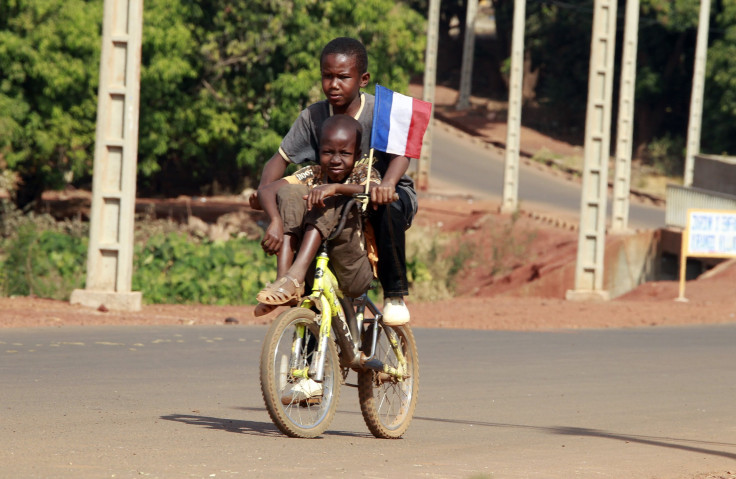Mali Election: Problems Abound As The Pivotal Moment Approaches

It's crunch time in the West African country of Mali, where officials are racing to conduct a presidential election on July 28 and bring about stability after two years of political upheaval and insurgent violence. There are a total of 28 candidates in the running. They're competing not only against each other, but against the clock; many analysts worry it's too soon for the country to organize elections that will be fair and accessible to all.
Among the front-runners are Dramane Dembele, who's backed by Mali's largest political party and whose scant political experience may actually inspire a jaded public; Ibrahim Boubacar Keita, a former prime minister who's well-known throughout the country but has failed twice to secure the presidency; and Soumaila Cisse, former president of the Commission of the West African Economic and Monetary Union.
Also running is Haidara Aichata Cisse, a businesswoman and activist who works on behalf of women's rights on a global scale. Her chances are slimmer, but her presence on the ballot is an encouraging sign for a country where ultra-conservative Islamists were so recently in control of huge swathes of land.
Mali had enjoyed a reasonably functional democracy for 20 years before a northern insurgency picked up steam in late 2011. The initial combatants were mostly Tuaregs, an ethnic group native to the Sahel, the southern edge of the Sahara Desert. A Tuareg group called the National Movement for the Liberation of Azawad, or MNLA in French, had made unprecedented inroads into northern Mali by early 2012. But their success was short-lived; MNLA fighters were either usurped by or absorbed into Islamist groups with ties to al Qaeda, whose goal was to establish Shariah law in the sparsely populated region. The ongoing conflict triggered discontent in the capital city of Bamako, where a band of mutinous army members seized control in March 2012. A civilian transitional government has since been established.
French troops moved in to quash the insurgency in January. They drove most Islamists out of key towns with help from regional African allies, though some threats still remain. They also made efforts to strengthen ties between Bamako and Tuareg citizens who had grown to resent the Islamist invaders.
But many of the problems that plagued Mali even before the insurgency -- including rampant poverty, ethnic tensions and a weak national army -- still remain. The presidential candidates are generally sticking to a platform of peace and reconciliation; they're also stepping up campaign efforts to bolster Mali's typically low voter turnout rates.
Unfortunately, the logistical problems in the lead-up to the poll are already myriad. On Saturday, for instance, four poll workers and a deputy mayor were kidnapped, possibly by MNLA-linked figures, only to be released on Monday. Last week, ethnic clashes in the majority-Tuareg northern town of Kidal killed at least one person.
For the past two weeks, a biometric ID card system of voter registration has encountered multiple problems, with many citizens complaining about long delays and confusing procedures. According to Voice of America, 7 million cards have already been handed out, leaving about 2 million yet to be disbursed as of Friday.
A flawed election could endanger the future government's legitimacy, which could be disastrous at this pivotal moment.
© Copyright IBTimes 2025. All rights reserved.





















